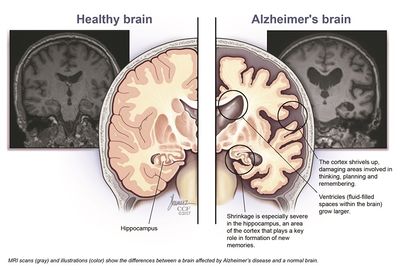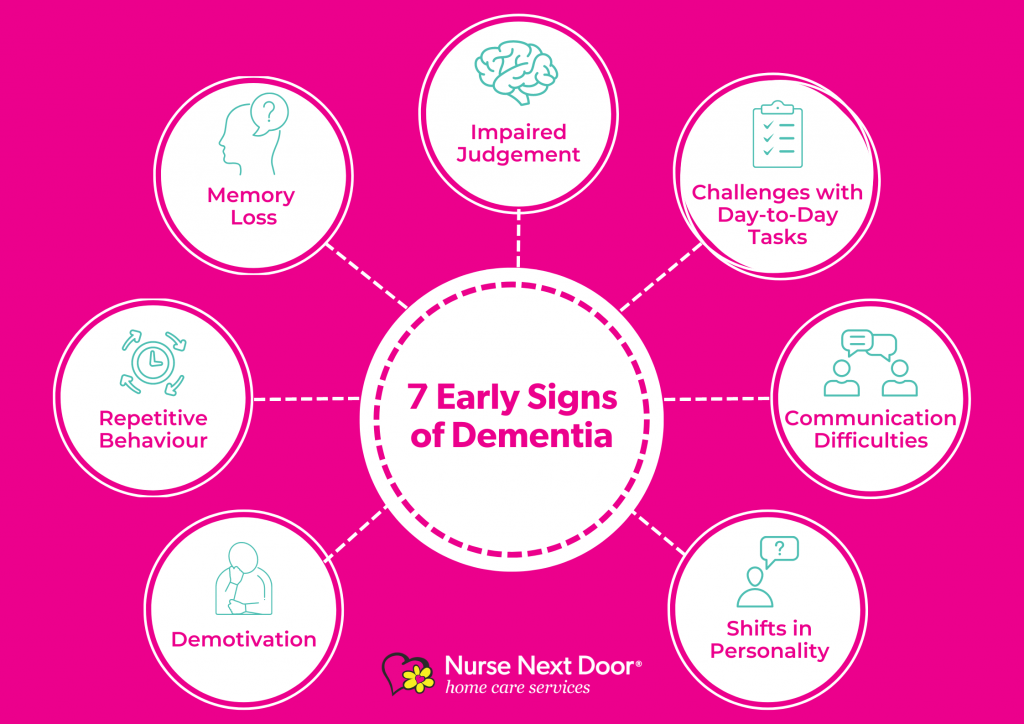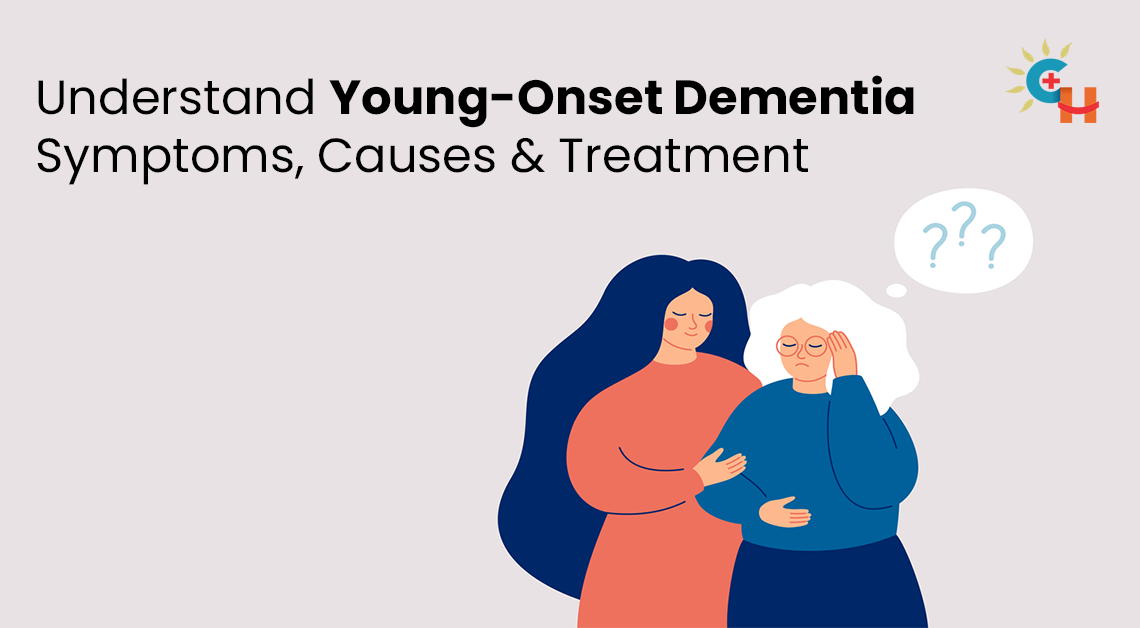Is There Hope for a Cure for Frontotemporal Dementia?
Is There Hope for a Cure for Frontotemporal Dementia?
Blog Article
Comprehending the Impact of Dementia on Every Day Life and Caregiving
Dementia impacts daily life in extensive methods, impacting not just those detected but also their caregivers. As cognitive decline progresses, you could see changes in communication and regular that challenge both celebrations. Comprehending these changes is essential for preserving dignity and interaction. Yet exactly how do you adapt your caregiving approaches to sustain somebody traversing this complex trip? The answers may amaze you as we explore the nuances of this experience.
The Phases of Mental Deterioration and Their Impacts on Every Day Life
As you navigate the journey of dementia, understanding its stages can substantially affect just how you take care of daily life. Mental deterioration typically progresses through 3 primary phases: early, center, and late. In the early phase, you could observe occasional memory gaps or problem discovering the appropriate words. This can lead to disappointment, yet identifying these signs early aids you adjust your regular and seek assistance.
During the center phase, you'll experience much more visible cognitive decline. Daily tasks may become challenging, and preserving your independence might need changes. Using tips and simplifying your atmosphere can aid.
In the late stage, individuals commonly need significant support with everyday tasks. Planning for care comes to be crucial, focusing on convenience and quality of life. By understanding these phases, you're better outfitted to react proactively, ensuring you or your liked one can browse the challenges with dignity and poise.

Changes in Interaction and Social Interaction
Just how do modifications in interaction affect your day-to-day communications as mental deterioration progresses? As dementia advancements, you may notice that straightforward conversations end up being difficult. Words might escape you, or you may struggle to locate the best phrases. This can bring about irritation for both you and your liked ones. Nonverbal cues, like gestures or face expressions, end up being increasingly crucial.
You may locate it simpler to link via these ways as opposed to depending solely on talked language. Listening skills can also transform; you may find it tougher to keep in mind or follow discussions what was simply claimed (Vascular Dementia). This can result in misconceptions or feelings of seclusion
Encouraging patience and developing a supportive setting can assist. Taking part in tasks that cultivate connection, like music or art, can enhance social interactions. Remember, keeping partnerships is still feasible; it's almost adjusting to brand-new ways of connecting.
Influence On Daily Routines and Activities
While steering day-to-day routines, you'll likely observe that jobs you when completed easily come to be extra challenging as mental deterioration advances. You may find on your own failing to remember steps in acquainted regimens or having a hard time to recall where you put products.
Planning your day can feel overwhelming, making it more difficult to adhere to a routine. You may need suggestions for consultations or to take medications. Adapting your environment can aid; as an example, classifying items or using checklists can streamline tasks. Participating in repeated, organized activities can additionally give convenience and a sense of success. Keep in mind, it's alright to request for help. Bordering yourself with helpful good friends or family members can make managing these adjustments a bit less complicated.
Emotional and Behavior Challenges
Guiding through everyday routines can bring around not just sensible challenges, yet behavioral and additionally psychological ones. You could notice adjustments in state of mind, such as enhanced anxiety or frustration, which can come from complication or difficulty in completing tasks. As you browse these moments, it is essential to identify that your liked one might express their feelings through actions like frustration or withdrawal.
These psychological actions can be uncertain and might emerge without caution, leaving you both sensation overwhelmed. You could find that acquainted environments or routines can help in reducing stress and anxiety, but preserving persistence becomes significant. It is very important to verify their feelings, even if you do not fully comprehend them.
The Role of Caregivers in Supporting Individuals With Mental Deterioration
As a caretaker, you play a necessary function in giving psychological assistance for individuals with dementia. Establishing daily care regimens can click here for more produce a sense of stability and convenience, assisting to relieve their anxiousness. By understanding their requirements and using reliable strategies, you can greatly improve their quality of life.
Emotional Assistance Approaches
When caring for somebody with mental deterioration, understanding the psychological landscape is necessary for offering efficient assistance. Straightforward motions, like holding their hand or preserving eye contact, can create a sense of safety and security. Eventually, do not forget to take treatment of your own emotional demands; looking for assistance for yourself can boost your capability to care for them.
Daily Treatment Routines
Developing day-to-day care routines is important for providing stability and convenience to people with mental deterioration, as these regimens can assist reduce complication and stress and anxiety. You can begin by laying out a constant routine for meals, tasks, and rest. This predictability aids your loved one really feel extra secure and involved.
Integrate familiar tasks, like folding washing or watering plants, which can stimulate favorable memories and cultivate a feeling of success. Use visual signs, such as calendars or checklists, to assist them with the day.
Be flexible, though; adjust routines as needed based upon their mood or energy degrees. Frontotemporal Dementia. Bear in mind, your patience and understanding are important in steering their changing needs, guaranteeing they feel supported and valued throughout their life
Creating a Safe and Comfy Living Atmosphere
Developing a comfy and secure living setting is vital for individuals with dementia. You'll desire to make home security adjustments that reduce threats and guarantee knowledge to offer a sense of convenience. By concentrating on these aspects, you can help develop an area that sustains both security and health.
Home Safety And Security Adjustments
As you navigate the challenges of mental deterioration, making home safety modifications can greatly boost convenience and safety. Start by eliminating tripping hazards like rugs and clutter, ensuring sidewalks are clear. Set up grab bars in restrooms and non-slip floor coverings in the shower to stop falls. Consider making use of brighter illumination and evening lights to improve exposure, especially throughout nighttime. Label crucial locations, such as the washroom and kitchen area, with clear indicators to aid with positioning. Safeguard any kind of sharp things or poisonous substances out of reach. In addition, examine your home's locks and alarm systems to verify they're straightforward and give assurance. These adjustments not just promote safety however likewise urge self-reliance, permitting your liked one to feel even more comfortable in their setting.
Comfort and Knowledge
After guaranteeing a safe atmosphere with required modifications, fostering convenience and familiarity is crucial for people with mental deterioration. Begin by personalizing their area. Use acquainted colors, designs, and photos that evoke delighted memories. A favorite blanket or chair can give a complacency. Keep a constant regular to help them feel grounded and reduce anxiousness. Simple, familiar meals can likewise produce a calming ambience. Keep pathways clear and clutter-free to prevent confusion. Integrate soft illumination, as brilliant lights can be disorienting. Take into consideration including comforting aromas, like lavender, to advertise leisure. Involving in acquainted activities, such as listening to music or gardening, can enhance their sense of belonging, making their living setting a real refuge.
Methods for Reliable Caregiving and Assistance
While steering the difficulties of dementia care can really feel overwhelming, implementing efficient strategies can substantially enhance both the caretaker's and the client's everyday experience. Start by developing a routine; predictability assists lower anxiety for both you and your loved one. Usage clear, easy communication-- brief sentences and direct inquiries can avoid complication.

Do not neglect to deal with on your own; timetable breaks and get in touch with support groups. Sharing experiences with others in comparable scenarios can give beneficial understandings and psychological relief.
Lastly, remain person and adaptable. Mental deterioration can bring unforeseeable changes, so adapting your approach is important. By employing these approaches, you can promote a much more positive setting that profits both you and your liked one.
Frequently Asked Questions

What Are the Different Kinds Of Dementia?
You'll find several kinds of mental deterioration, consisting of Alzheimer's, vascular dementia, Lewy body dementia, and frontotemporal dementia. Each type affects memory and cognitive function differently, so comprehending the differences is important for correct diagnosis and care.
How Can I Help Someone With Early-Stage Mental Deterioration?
You can aid a person with early-stage mental deterioration by holding your horses, offering support, and motivating them to participate in tasks they enjoy. Keeping routines constant and keeping open interaction can additionally make a significant difference in their day-to-day live.
Are There Financial Resources Available for Mental Deterioration Treatment?
Yes, there are funds offered for dementia treatment. You can check out government aid programs, not-for-profit companies, and insurance policy alternatives. It's likewise a good idea to get in touch with neighborhood firms for certain sources view tailored to your scenario.
What Lawful Considerations Should Caregivers Be Mindful Of?
As a caregiver, you ought to take into consideration power of attorney, health care proxies, and guardianship legislations. It's important to understand the lawful civil liberties and obligations you hold, guaranteeing your liked one obtains proper treatment and defense.
How Can I Manage Caregiver Stress?
You can manage caretaker tension by focusing on self-care, seeking assistance from groups or close friends, setting realistic assumptions, taking breaks, and practicing leisure techniques. Keep in mind, your well-being matters just as high as the person you're looking after.
Understanding the Effect of Mental Deterioration on Daily Life and Caregiving.
As you navigate the trip of dementia, recognizing its stages can markedly affect just how you manage day-to-day life.While maneuvering everyday regimens, you'll likely notice that tasks you when finished effortlessly come to be much more tough as mental deterioration advances.Developing daily treatment routines is important for giving stability and comfort to people with dementia, as these regimens can help decrease complication and stress and anxiety.While steering the difficulties of mental deterioration care can really feel overwhelming, executing reliable strategies can substantially improve both the caretaker's and the person's daily experience.
Report this page